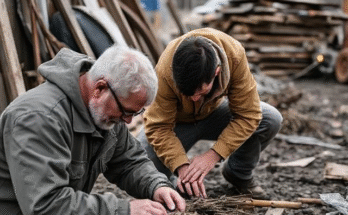Introduction
Life is full of twists and turns, highs and lows, triumphs and setbacks. Among the toughest things we learn on our journey is that we can’t control everything.
Events happen some people don’t behave as we may have wished they would, and sometimes things are just out of our control. When we come face to face with these immovable forces, we are presented with a choice, resist or accept.
This choice, however, has profound impacts on our mental well-being, our ability to grow, and our happiness.
Why Acceptance Matters
Acceptance does not mean quitting or losing hope. Rather, it is understanding when it’s time to surrender and accept that our efforts to make a certain person, situation or circumstance different will hurt more than help.
Releasing everything that we can’t change allows us to focus our energies on all of the things that we can, i.e., our actions, our reactions, the ambitions we create for ourselves. That allows us to stop circling, to be freed from this state of taking things personally, and focus on what’s important.
Acceptance is not about giving up, throwing in the towel, or sitting on the floor crying—this is about a transformation, our conscious decision to view things from a different lens to align our energy in favor of what is truly serving us. It allows us to break free of the horrible cycle of resistance and frustration, and enter clarity and intentional action. In accepting reality as it is, we can proceed with confidence and orientation toward change rather than paralysis.
Turning our focus inwards encourages growth and creating inner peace and strengthening our will to surmount all of the earthquakes that a life could throw at us with grace. In this respect, acceptance acts as an alchemical agent, an antidote for the human hedonic treadmill, where we are so so prepossessed with what we lack that we end up needing to wander even further than what we already do, despising ourselves for the decisions that led us to the place we stand today, a life contingent not on what we desire, but on the alternative, to halve it as small as possible.
In accepting what cannot be changed, the result is a life of better resilience and, consequently, more graciousness. Acceptance allows us to
Reduce Stress and Anxiety: Constant tussle with the fact may get exhausting. Realizing that sometimes it happens with nobody’s say as it has gone out of human control saves man from frustration because usually one accepts things to go his way.
Improve Relationships
Most relationships will find conflict arising from attempts to change the other person’s behavior or attitude By giving that up, we foster further mutual understanding and empathy, allowing there to be more authentic, peaceful relations.
Boost Personal Growth:
Acceptance can make one grow. Every time a person stops resisting, then that mental space is occupied with self awareness as well as positive change about the things that really matters .
Acceptance in Action
Here are some practical ways to cultivate acceptance:
Reframe the Situation: Instead of dwelling on what you cannot change, reflect on how to respond in a positive way Reframing is critical as it determines that challenges may provide us with opportunities for growth.
Practice mindfulness: The present can save us from dwelling on the unchangeable past or speculating about an uncertain future. Mindfulness encourages a “let it be” mentality that plants us in the here and now.
Acknowledge Your Emotions: Acceptance does not mean suppression of emotions. Actually, it is the opposite accepting feels acknowledging and working through feelings. Allow yourself to feel disappointment, sadness, or frustration, and then, slowly, let go.
Focus on Gratitude: Reflecting upon what one does have, especially when life has become difficult , really can help one look beyond temporary hardships. Gratitude shifts our focus from lack to plenty, and in that process, acceptance in times of difficulty is easily facilitated.
Transforming Resistance into Peace
Sometimes, resistance can just feel like fighting the good fight for justice, control, or at least some sense of power in life. Such a fight often brings with it greater inner distress than is imagined. Accepting what we cannot change does not make us powerless; it empowers us through giving us peace. It lets us preserve our energy for things that truly enrich our lives and propel us forward.
Letting go does not mean surrendering—it means choosing where to focus our strength. When we learn to release what is beyond our control, we create space for clarity, resilience, and growth. The more we practice acceptance, the more we find ourselves freed from unnecessary suffering, able to embrace life’s challenges with greater wisdom and purpose.
Try to remember in those rough moments the words of Reinhold Niebuhr: “Grant me the serenity to accept the things I cannot change, courage to change the things I can, and wisdom to know the difference.” Wisdom challenges us to draw a line between battles to be fought and those left at rest.
conclusion
Life will always throw us challenges that dig deep into our resilient patience for things not in our power. By embracing the art of acceptance, we don’t give up, we evolve.
We become more resilient, self-aware, and better at navigating life’s uncertainties with a calm, open heart. So take a deep breath, let go of what you cannot change, and allow yourself to move with life’s natural rhythm. After all, it is in acceptance that our real strength lies.



